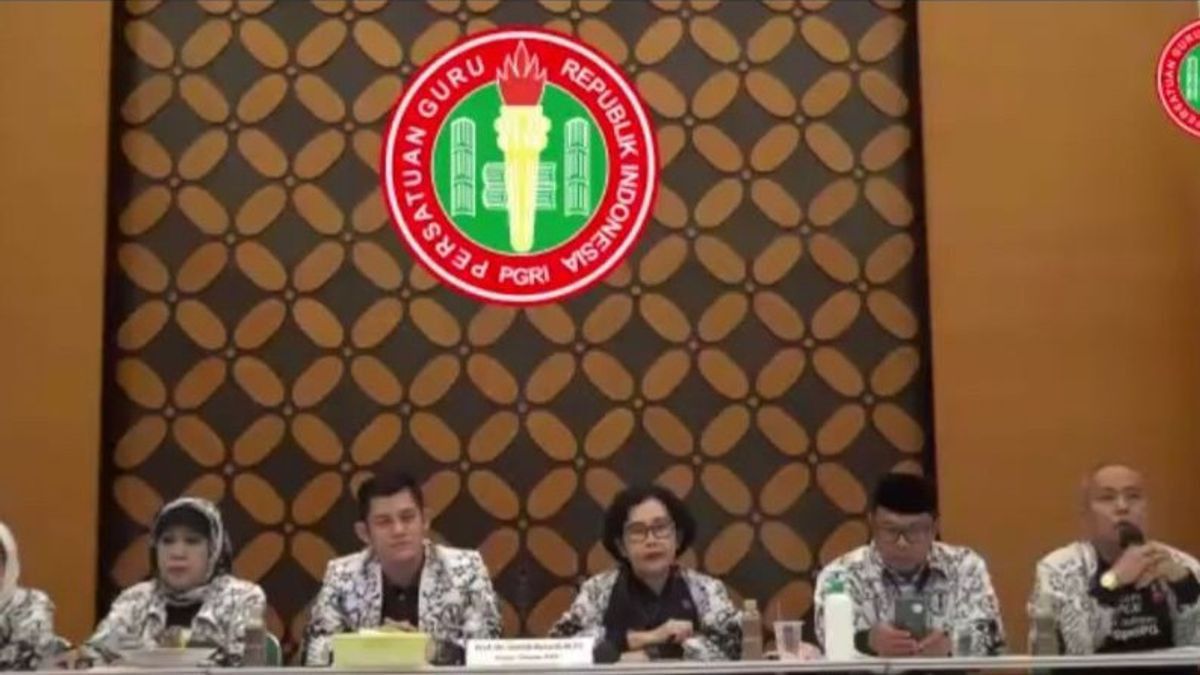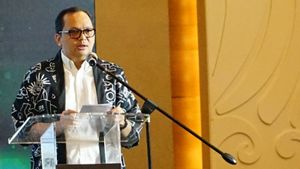YOGYAKARTA The Ministry of Education, Culture, Research, and Technology has been in the spotlight after uploading the latest text of the Draft Law on the National Education System or abbreviated as the Sisdiknas Bill. Although it is still just a draft, this bill has sparked debate. Then, what is the Sisdiknas Bill?
The Sisdiknas Bill is a bill that will regulate the National Education System. This bill will replace three old laws related to education, namely Law no. 20 of 2003 concerning Sisdiknas, Law no. 14 of 2005 concerning teachers and lecturers, and Law no. 12 of 2012 concerning higher education.
The submission of this bill was carried out in the 2022 Priority Legislation Program (Prolegnas) which was submitted to the House of Representatives (DPR).
However, the draft bill has drawn debate because it is considered not to have an answer to the education problems that have been happening in the country. There are several important points that are in the spotlight. A number of pros and cons in the bill are debated by a number of experts, especially among academics. For more details, VOI summarizes for you.
There are a number of important points that are then in the spotlight in the Sisdiknas Bill, which is as follows.
In the Sisdiknas Bill, the August 2022 script, there are no detailed rules regarding the allowance for the teaching profession. However, Article 105 of the Sisdiknas Bill only regulates the wages, social security, and awards that are approved with work achievements.
Responding to this, the General Chairperson of PB PGRI, Prof. Unifah Rosyidi, expressed his objection. He asked to return the verse related to the rules of the teacher's professional allowance.
"In the draft of the Sisdiknas Bill as of August 22, 2022, what we received really denies public logic. Implementing the teaching profession and lecturers," said Prof. Unifah Rosyidi, at a press conference in Jakarta, Sunday, August 28, quoted by Antara News.
PGRI itself stated that it rejects firmly the abolition of articles on allowances for the profession of teachers, allowances for remote areas, allowances for lecturers, and allowances for honorary lecturers.
Based on the Sisdiknas Bill, prospective teachers must pass Teacher Professional Education or PPG. This is stated in Article 109 paragraph 1 which explains that everyone who will become a mandatory teacher from Teacher Professional Education (PPG). However, for teachers who have taught when this Law is issued but have not followed or passed PPG, they can still teach.
In the future, the central government will meet the availability of PPG capacity to meet the needs of education administration.
In the Sisdiknas Bill, the Government adds the provisions for the mandatory period of learning to 13 years. It is detailed that it is required to study consisting of 10 years of basic education and three years of secondary education.
Basic education includes pre-school classes and grades 1-9. While secondary education includes class 10-12.
PAUD education is proposed to be separated as a separate level in regulating the path, level, and type of education in the national education system. PAUD can be held through formal and non-formal channels with clear age and service categories.
Article 24 states that formal PAUD is intended for children aged three to five years with services in the form of child parks. Meanwhile, Article 49 states that non-formal PAUD is held for the age of 0 to five years in the form of care services.
Pancasila will also become a mandatory subject. This is in accordance with the Sisdiknas Bill Article 81 which states that the mandatory curriculum at the elementary and secondary education levels includes religious education, Pancasila education, and Indonesian language.
For those of you who download the Sisdiknas Bill, it can be done through the official website of the Ministry of Education and Culture or through the following link.
The script for the August 2022 Sisdiknas Bill.
In addition to what is the Sisdiknas Bill, visit VOI.ID to get other information.
The English, Chinese, Japanese, Arabic, and French versions are automatically generated by the AI. So there may still be inaccuracies in translating, please always see Indonesian as our main language. (system supported by DigitalSiber.id)









